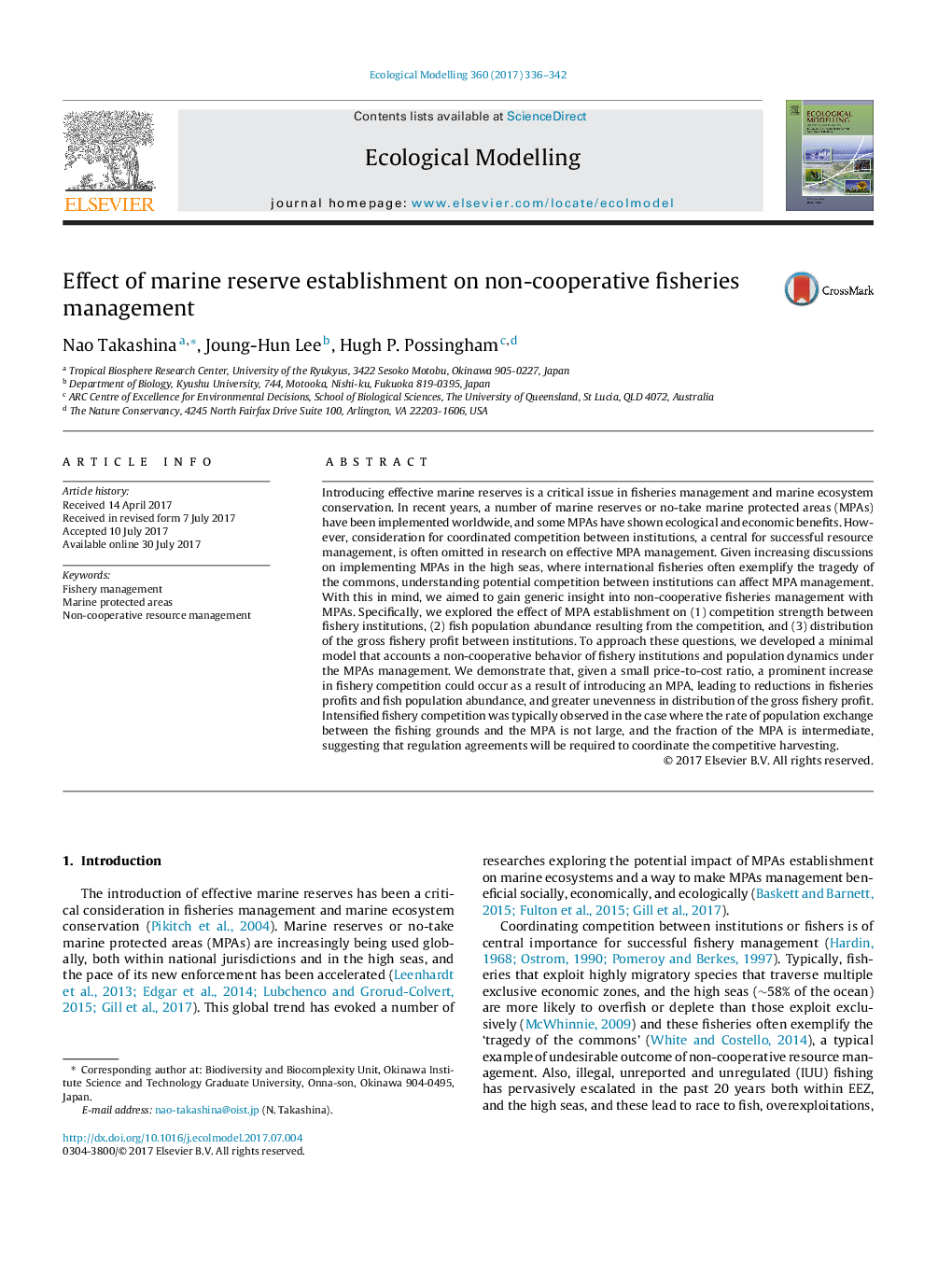| کد مقاله | کد نشریه | سال انتشار | مقاله انگلیسی | نسخه تمام متن |
|---|---|---|---|---|
| 5742073 | 1617387 | 2017 | 7 صفحه PDF | دانلود رایگان |
- We analyzed MPA management under non-cooperative fisheries.
- Impact on fishery profit and population abundance are investigated.
- Intensive competition occurs with medium-sized MPA and species with less mobility.
- These two conditions are often suggested to improve sole-owner MPA management.
Introducing effective marine reserves is a critical issue in fisheries management and marine ecosystem conservation. In recent years, a number of marine reserves or no-take marine protected areas (MPAs) have been implemented worldwide, and some MPAs have shown ecological and economic benefits. However, consideration for coordinated competition between institutions, a central for successful resource management, is often omitted in research on effective MPA management. Given increasing discussions on implementing MPAs in the high seas, where international fisheries often exemplify the tragedy of the commons, understanding potential competition between institutions can affect MPA management. With this in mind, we aimed to gain generic insight into non-cooperative fisheries management with MPAs. Specifically, we explored the effect of MPA establishment on (1) competition strength between fishery institutions, (2) fish population abundance resulting from the competition, and (3) distribution of the gross fishery profit between institutions. To approach these questions, we developed a minimal model that accounts a non-cooperative behavior of fishery institutions and population dynamics under the MPAs management. We demonstrate that, given a small price-to-cost ratio, a prominent increase in fishery competition could occur as a result of introducing an MPA, leading to reductions in fisheries profits and fish population abundance, and greater unevenness in distribution of the gross fishery profit. Intensified fishery competition was typically observed in the case where the rate of population exchange between the fishing grounds and the MPA is not large, and the fraction of the MPA is intermediate, suggesting that regulation agreements will be required to coordinate the competitive harvesting.
Journal: Ecological Modelling - Volume 360, 24 September 2017, Pages 336-342
